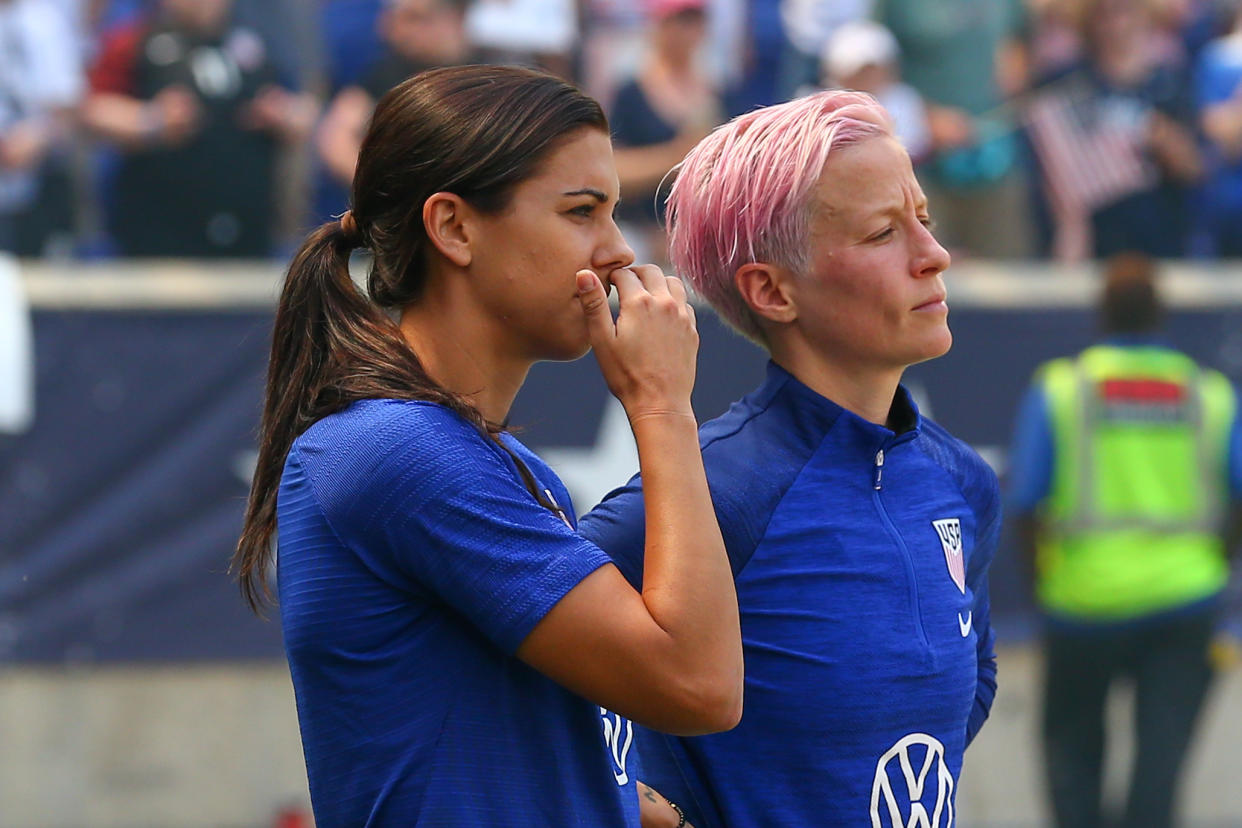USWNT dealt major blow as judge rules claims of unequal pay insufficient to warrant a trial

The equal pay lawsuit filed by the United States women’s national team has been dealt a major blow.
A judge granted summary judgment Friday in favor of the U.S. Soccer Federation, arguing that the USWNT’s claims of being paid less than their male counterparts were insufficient to warrant a trial.
The players on the USWNT had sued their boss, U.S. Soccer, last year alleging that the federation paid the U.S. men’s national team more due to gender discrimination. The USWNT, which was granted class certification, sought as much as $67 million in backpay.
The arguments the USWNT lost
The judge presiding over the case, R. Gary Klausner, was compelled by U.S. Soccer’s argument that the players on the USWNT had actually been paid more than players on the USMNT, both cumulatively and on a per-game basis.
The USWNT had argued that they are paid smaller bonuses and would’ve earned more money under the men’s CBA, but the judge said “this evidence is insufficient to create a genuine issue of material fact for trial.”
In particular, the judge pointed to a “history of negotiations” where the USWNT had sought more guaranteed compensation than the riskier pay-to-play structure in the USMNT’s contract. The USWNT “cannot now retroactively deem their CBA worse than the USMNT CBA by reference to what they would have made” under the men’s contract, the judge wrote.
Molly Levinson, a spokeswoman for the USWNT, said the women will “immediately appeal.”
“We are shocked and disappointed with today's decision, but we will not give up our hard work for equal pay. We are confident in our case and steadfast in our commitment to ensuring that girls and women who play this sport will not be valued as lesser just because of their gender. We have learned that there are tremendous obstacles to change; we know that it takes bravery and courage and perseverance to stand up to them. We will appeal and press on. Words cannot express our gratitude to all who support us.”
U.S. Soccer spokesman Neil Buethe issued a statement as well.
“We look forward to working with the Women’s National Team to chart a positive path forward to grow the game both here at home and around the world. U.S. Soccer has long been the world leader for the women’s game on and off the field, and we are committed to continuing that work to ensure our Women’s National Team remains the best in the world and sets the standard for women’s soccer.”
In addition to losing the equal pay argument, the USWNT was also ruled against on the subject of artificial turf.
The USWNT has had to play U.S. Soccer-operated games on artificial turf over the years – including a highly publicized incident where the players boycotted a game in Hawaii in 2015 – while the USMNT went a 23-year stretch of only playing on natural grass. When the USMNT played at venues with artificial turf, like CenturyLink Field, U.S. Soccer paid to install temporary grass over the surface, whereas the when the women played at the same venue, no such accommodations were made.
But the judge said there was “insufficient evidence” that the reason for this disparity was “unlawful discrimination,” and reasons other than player safety could be considered in scheduling games.
USWNT lawsuit still on track for trial
Two other components of the USWNT’s lawsuit remain unresolved and on track for a trial, however.
The USWNT had argued that U.S. Soccer was discriminating against the women by not providing charter flights for their games while the men did get charter flights. U.S. Soccer argued that the USMNT needed the charter flights to gain a “competitive advantage”, but the judge said it was “implausible” that the USWNT never could’ve gained a competitive advantage from charter flights.
U.S. Soccer had also allocated less funding for USWNT travel, which “gives rise to an inference of a discriminatory motive,” the judge wrote.
Second, the judge opted not to weigh on the question of whether the USWNT had been provided fewer support services than their male counterparts because the issue was raised later in the back-and-forth seeking summary judgements. The trial date has been pushed back from May 5 to June 6 due to the coronavirus.
Caitlin Murray is a contributor to Yahoo Sports and her book about the U.S. women’s national team, The National Team: The Inside Story of the Women Who Changed Soccer, is out now. Follow her on Twitter @caitlinmurr.
More from Yahoo Sports:

